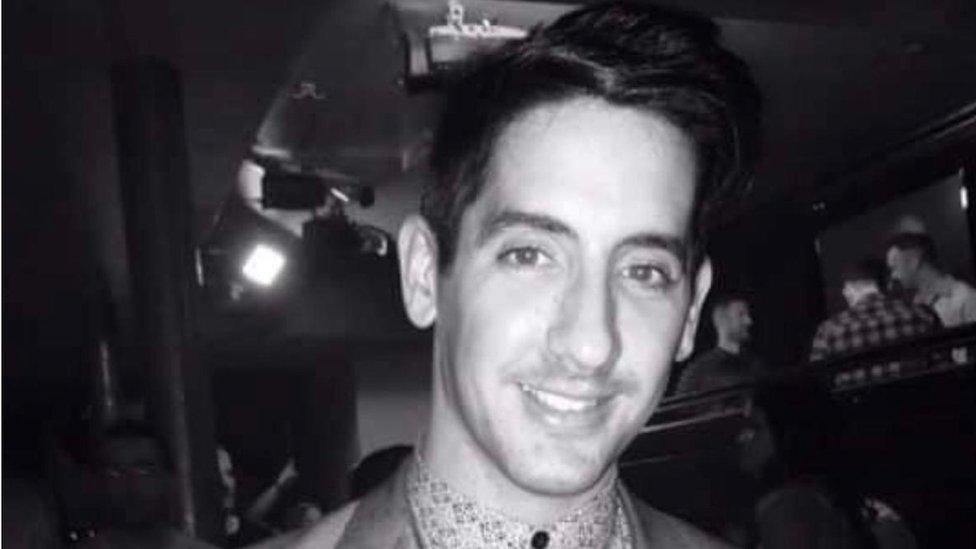Cost of living: 'People don't want to say how much they're struggling'
- Published
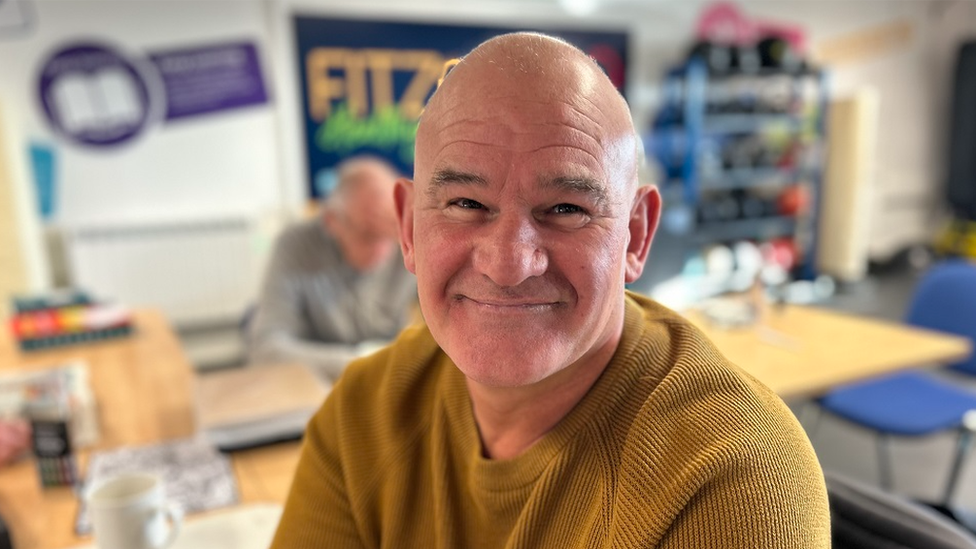
David Cooney said chatting to others is an important part of the Health in Mind (HIM) group experience
The cost-of-living is hard - and coping with it mentally can be even harder.
It's a subject not far from the minds of those attending a men's group in Craigavon, County Armagh, each week.
One of those, David Cooney, sums it up: "People don't want to tell you how much they're struggling."
Fortunately the Health in Mind (HIM) group has become a space for David and others to talk.
It provides board games, an exercise space, warm food, drinks and an atmosphere encouraging people to get things off their chest.
"You don't want to be talking to strangers about the difficulties you're having financially in the house," said David. "Sometimes here, in some groups, they might ask you how you're getting on and it's great because you can just chat away."
Figures from the Mental Health Foundation, released on Wednesday, suggest 34% of adults in Northern Ireland felt anxious in the last month about their personal financial situation.
That figure rises to 57% among young people aged 18 to 24.
For David, the key to the success of the HIM group, organised by local charity the Fitzone Foundation, is that it offers a comfortable, friendly space for people to offload.
"You're sitting nice and warm and not worrying, There are plenty of people worse off than we are."
'You constantly worry about it'
Tony Campbell also attends the HIM group - he's concerned about mental health and rising prices.
"You don't know where it's all going to end. You ask: 'What am I going to do?'
"You have to worry about it, and it is a worry, particularly when everything's going up and not going down. You constantly worry about it."
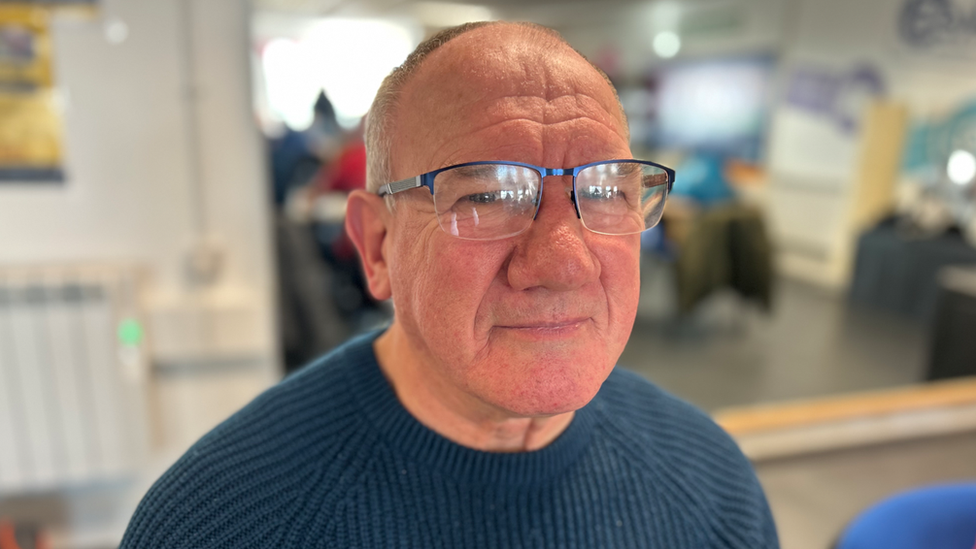
Tony Campbell said everyone is in the same boat
However he said getting out and meeting people was essential.
"You can't just sit in the house all the time trying to keep warm. That will have an impact on your mental health as well."
But with the coldest winter months still to come, Tony's aware that things could yet get worse for many people.
"Everyone's in the same boat. Maybe we're quick to judge where we think people are ok and they're not."
'Things are getting out of hand'
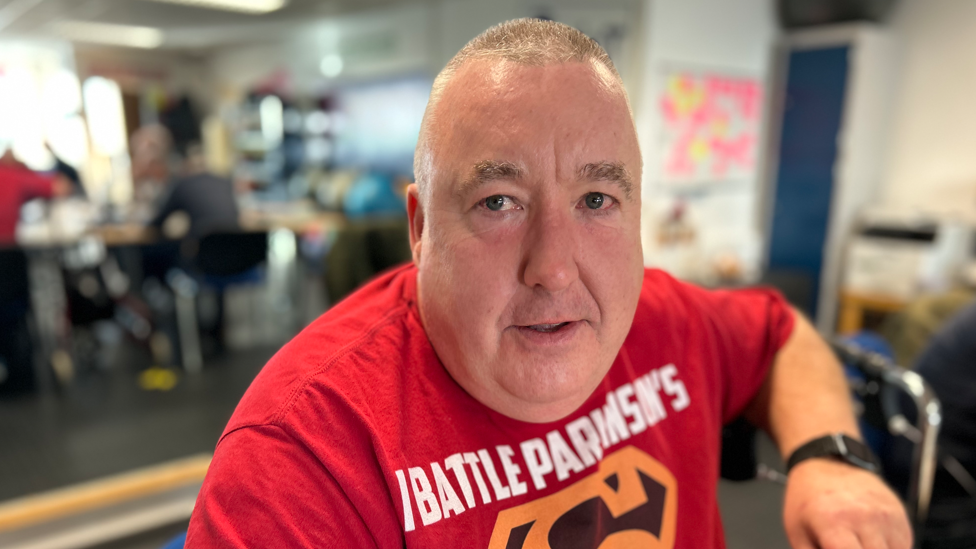
"People are buying less and less all the time" - Robin McGeown
Robin McGeown told BBC News NI some people are afraid to talk about it because they cannot afford for prices to keep rising.
"It's not a comfortable thing to talk about, people think they're poor and can't afford that. People are buying less and less all the time.
"You go to buy your groceries and everything's going up. Things are getting out of hand."
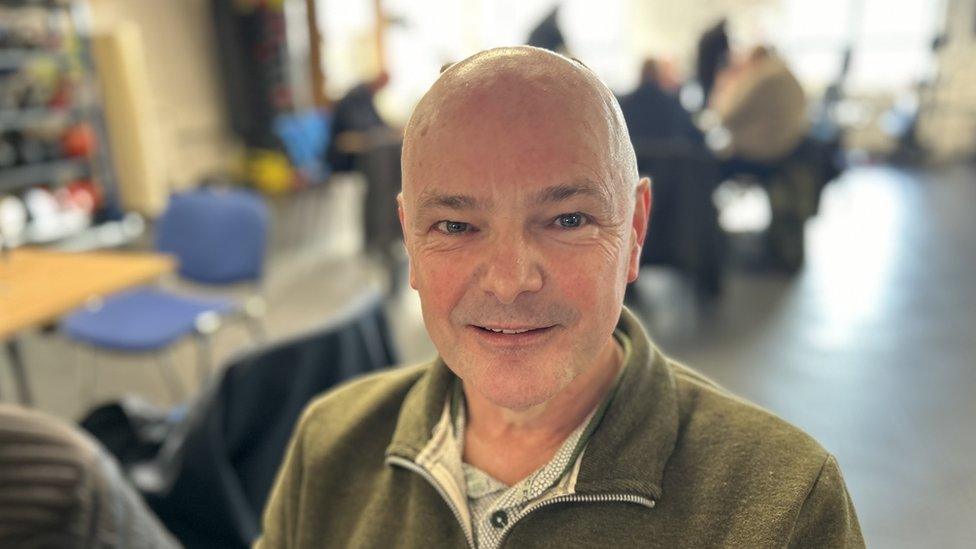
Gordon Owens said pride can stop people opening up
Gordon Owens suggested pride meant people were putting on a "front" about their mental health.
"(You can) Put on an extra shirt or coat jumper to keep you warm - but at the end of the day you still need it. You still have to pay for it.
"People maybe feel their pride's been hurt, by coming out with it that they're struggling. And that's maybe why they don't do it.
"That's why we come to places like this. It's like stress release. Takes other things off your mind."
Isolation is another major issue - the Mental Health Foundation has reported that 19% of people have seen family and friends less often because of a lack of money.
David Cooney has found that rising costs meant people do not socialise as much as they used to.
"If you have to drive places, you're thinking: 'How much is this going to cost me to run the car to A or B?'
"You're saying: 'I'm not going to go there.' You're not going to go out socialising, for a meal or to a café."
The men's group helps with that.
"You're spending half a day in here because you know it's nice and warm, particularly this time of year. You've got tea, scones and your breakfast and it cuts down a cost," he added.
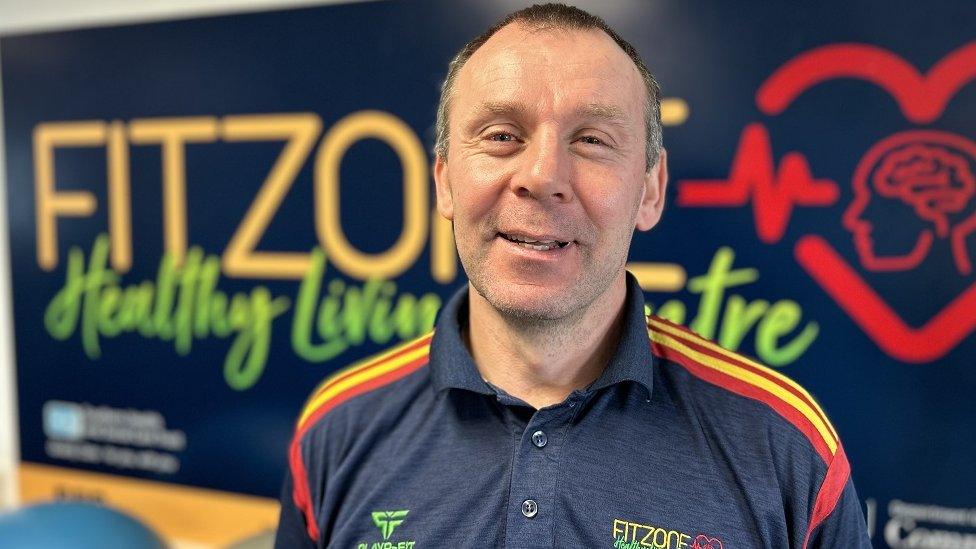
"If you're struggling, say to someone" - Sean Collins
Sean Collins, project co-ordinator at the Fitzone Foundation, said that mental health will suffer when people are worried about feeding themselves or their families but getting vocal can help.
"Talking - we know it does improve the mental health, and the guys here do that in abundance. It's great that men come out here and talk about their issues," he said.
However, as a charity, it is dependent on funding to facilitate the 100 or so people who attend on a weekly basis through different projects.
"We do our best to meet as many needs as possible," said Sean.
He added: "Men need to get out and chatting. But talking - just talk to people. And if you're struggling with anything, say to someone."
More needs to be done at a government level, said Karen Hall, from the Mental Health Foundation.
It's concerning, she said, that people are not getting out to see family and friends as often as they used to; that they're putting their heating on less; and not eating as well as they could be.
"Nutrition is a big part of our mental health as well and if we're not able to get those things, that's having an impact.
"We've had short-term solutions, but we need long-term solutions. We need a sustainable government, a stable government here, to start taking decisions about what we can do to really reduce the level of poverty here and alleviate that financial stress for people."
Related topics
- Published26 August 2023
